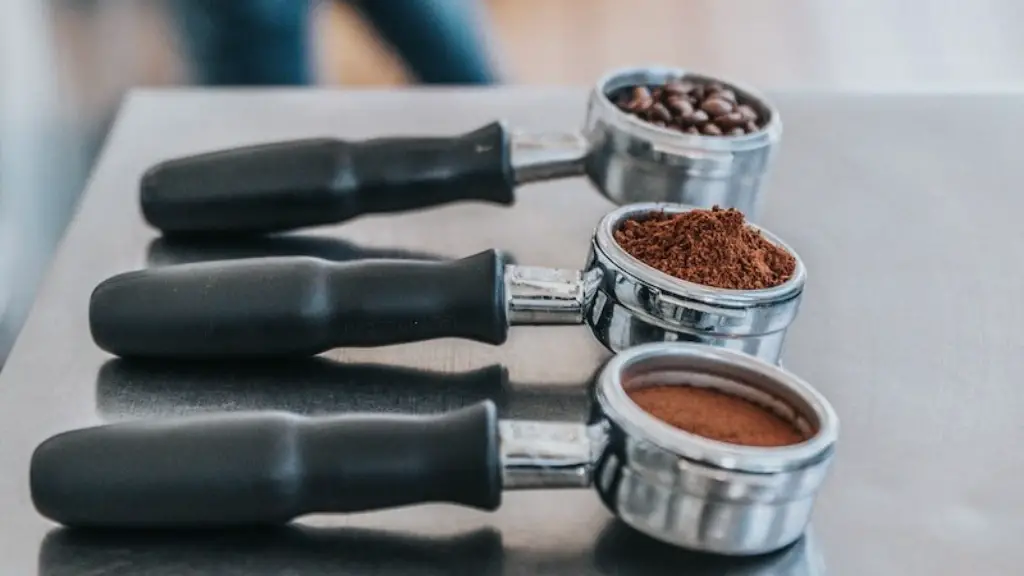Caffeine and Nervousness
Coffee is known for being a stimulant which often provokes feelings of nervousness after drinking it. Caffeine, the most abundant psychoactive substance in coffee, is a stimulant that can activate the sympathetic nervous system, resulting in a physiological state of alertness and activation. It is generally recognized as safe and is one of the most commonly consumed drugs in the world. But why does it make us feel so nervous after drinking it?
Neurochemical Effects
Caffeine affects the brain by triggering a neurotransmitter (brain chemicals) called adenosine, which is responsible for promoting sleep and relaxation. When caffeine binds to the adenosine receptors, it prevents them from being activated and thus the body is unable to relax. The result of this is that the individual can become jittery and experience a heightened sense of arousal and energy.
Psychological Effects
Caffeine can also affect a person’s mood and emotion, leading to feelings of anxiety and nervousness. For some people, the effects can be so strong that they may become overly anxious or even suffer from panic attacks. Furthermore, drinking too much caffeine can result in feelings of guilt or regret, since some people believe that drinking coffee is bad for their health.
Genetic Factors
Another reason why some people may feel more nervous after drinking coffee could be due to genetic factors. According to research, people who carry certain genetic variants may be more sensitive to the effects of caffeine and therefore may experience more intense symptoms.
Timing of Coffee Drinking
The time of day that you drink your coffee can also affect how you feel afterward. Drinking it late in the day can make it difficult to fall asleep later that night, resulting in heightened anxiety and restlessness. Therefore, it is best to limit coffee consumption to the morning or early afternoon in order to avoid this problem.
Healthy Ways of Dealing With Nervousness
It is important to remember that there are healthy ways to deal with the feeling of nervousness after drinking coffee. Some techniques include deep breathing, yoga, meditation, physical activity, and listening to calming music. Additionally, if the nervousness persists, it might be a good idea to speak with a healthcare professional to discuss coping strategies.
Using Coffee Responsibly
Finally, if you do want to consume coffee, it is important to do so responsibly. It is best to limit coffee consumption to two to four cups per day and to avoid drinking too close to bedtime. Additionally, try to choose coffee with low levels of caffeine and high-quality beans that are less likely to cause jitters.
What are the Long Term Effects of Caffeine?
The long-term effects of caffeine consumption depend on a variety of factors, including the amount and frequency of consumption. Generally speaking, regular, moderate intake of coffee is not associated with any adverse risks, although it is important to be aware of any potential negative side effects such as nervousness. Some studies suggest that regular and long-term use of coffee may be associated with increased risk of hypertension and other cardiovascular diseases, although more research is needed to confirm this.
How Much Caffeine is Too Much?
The amount of caffeine that is considered to be too much varies from person to person. Generally, experts advise limiting caffeine intake to 400 mg per day, which is around four cups of brewed coffee. However, it is best to check with a healthcare professional to discuss individual needs and tolerance.
What are the Benefits of Coffee?
In addition to its energizing effects, coffee can offer a number of health benefits. Some research suggests that drinking coffee can reduce the risk of stroke, depression, cognitive decline, and even certain types of cancer. Additionally, it may help improve physical performance and alertness.
Conclusion: Sensible Caffeine Consumption is Key
Although drinking coffee can have some beneficial effects, it is important to keep in mind that it can also cause nervousness. The key is to consume it in a sensible manner, by limiting consumption to a moderate amount and avoiding it late in the evening. Additionally, if the feeling of nervousness persists, it is a good idea to check with a healthcare professional.


